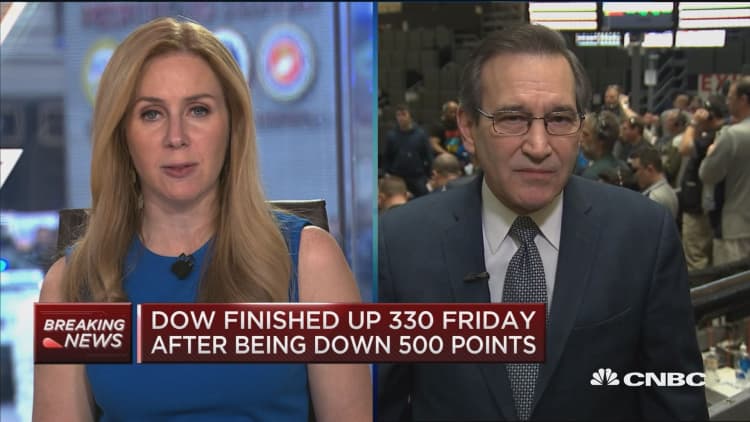
The 10-year Treasury yield clawed its way back to a new four-year high Monday after an equity sell-off that it helped cause sent its rate back down last week.
The yield on the benchmark 10-year Treasury note was slightly higher at 2.860 percent at 4:22 p.m. ET, while the yield on the 30-year Treasury bond also ticked up to 3.146 percent. Bond yields move inversely to prices.
Earlier Monday, the 10-year Treasury yield rose to 2.902, its highest level in more than four years as concerns over inflation continued. The 30-year bond yield rose to its highest level since March 14, when the bond yielded as high as 3.215 percent. Traders are expecting Wednesday's Consumer Price Index (CPI) for January to validate fears that inflation is ramping up.
Investors expect CPI growth of 0.3 percent month over month and 1.9 percent year over year, according to StreetAccount.
Robin Griffiths, chief technical strategist at ECU Group, told CNBC on Monday that inflation fears and thus the current state of the bond market are not offering investors the safe option that they usually have when stock prices come down.
Treasurys
"In normal rotation from bull to bear, you'd go straight into government bonds, but this is the problem. With interest rates going up, because the economy is strong and inflation is picking up, government bonds have become not the safest asset class in the planet but toxic waste," he said.
"So, by relative comparison, you're sort of trapped into equities even though you know they are not good value," he added.
Last week, the yield on the 10-year soared over 2.88 percent, clinching a 4-year high and sparking a week of equity turmoil. With stronger-than-expected wages numbers in the Labor Department's recent jobs report, investors have been worried that rising inflation could undermine the value of debt's fixed payments.
But equity traders headed for the exits as yields rose, pivoting to safe havens like Treasurys as the Dow Jones industrial average hemorrhaged value, spurring bond purchasing and sending yields off their highs.




